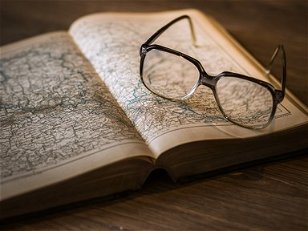8. Which was the year the Anglo-Saxons started to invade Great Britain ?
(There were previously some attacks but this is considered as the real beginning of the invasion).
From Quiz Across Time and Place
Answer:
430
In 410, the Visigoths (led by Alaric) sacked Rome, and Roman troops withdraw from Britain to protect Rome thus, de facto, Britain was then independent - and abandoned.
In 430, the Saxons had settled in Kent, round London and on the coast near the Wash and the Humber estuary.
In 432, St Patrick is made a bishop at Auxerre (in Burgundy, France) and is sent on a mission to convert the Irish to Christianity. His ministry in Ireland lasts for 29 years.
In 436, The Burgunds are trounced by the Huns (this event was retold in the medieval epic, the "Nibelungenlied" - and inspired part of the Wagner's fourth opus of his tetralogy).
In 451, Attila is defeated by a coalition formed of a Roman army and of Germanic tribes (Visigoths, Burgunds, Alans and some Franks).
In 496, Clovis King of the Franks - the first French king - was baptized. (The names Louis, Lewis, Luigi, Luis, Ludovic, Lodwick, Ludwig, Lodewijk etc. are all derived from the name Clovis (in germano-latin : Hlodovicus)). He was the first Catholic King. Previously all the converted Germanic tribes (Visigoths, Burgundians, etc.) were considered heretics since they were Arians, that is, followers of the the doctrines of Arius which did not accept the equality of all three persons of the Holy Trinity. Clovis eventually won against the other barbarians in France, allowing the Catholicism to flourish. That's why, later, France was nicknamed 'the oldest daughter of the church'.








